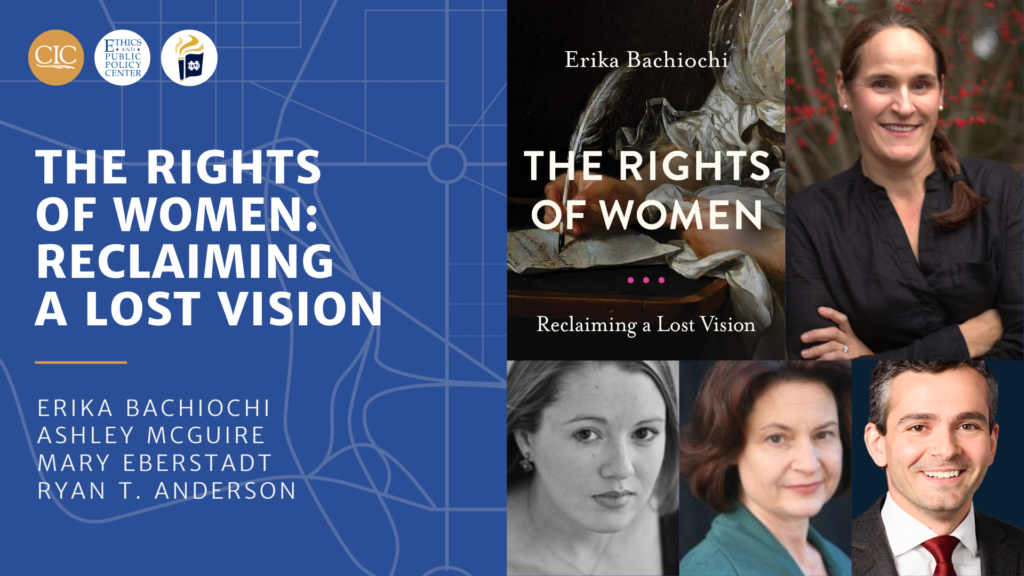Tuesday, July 20, 2021
6:00 p.m. ET – 7:00 p.m. ET
Have the gains achieved by modern feminists in the political and economic spheres relied on a too-narrow idea of liberty and equality at the expense of a richer understanding of the natural duties that we owe to one another? If so, what are the costs of this, and can the proper foundation of equal rights be reclaimed?
EPPC Fellow Erika Bachiochi gave remarks reflecting on the themes of her new book, The Rights of Women: Reclaiming a Lost Vision, which offers an original look at the development of feminism in the United States and proposes a philosophical and legal framework for rights grounded in our responsibilities.
The event was moderated by EPPC President Ryan T. Anderson and included responses from Mary Eberstadt and Ashley McGuire.
This event was hosted by the Catholic Information Center and co-sponsored by EPPC and the de Nicola Center for Ethics and Culture. The book was published in the de Nicola Center’s book series with University of Notre Dame Press.
About the Book
In The Rights of Women, Erika Bachiochi explores the development of feminist thought in the United States. Inspired by the writings of Mary Wollstonecraft, Bachiochi presents the intellectual history of a lost vision of women’s rights, seamlessly weaving philosophical insight, biographical portraits, and constitutional law to showcase the once predominant view that our rights properly rest upon our concrete responsibilities to God, self, family, and community.
Bachiochi proposes a philosophical and legal framework for rights that builds on the communitarian tradition of feminist thought as seen in the work of Elizabeth Fox-Genovese and Jean Bethke Elshtain. Drawing on the insight of prominent figures such as Sarah Grimké, Frances Willard, Florence Kelley, Betty Friedan, Pauli Murray, Ruth Bader Ginsburg, and Mary Ann Glendon, this book is unique in its treatment of the moral roots of women’s rights in America and its critique of the movement’s current trajectory. The Rights of Women provides a synthesis of ancient wisdom and modern political insight that locates the family’s vital work at the very center of personal and political self-government. Bachiochi demonstrates that when rights are properly understood as a civil and political apparatus born of the natural duties we owe to one another, they make more visible our personal responsibilities and more viable our common life together.
This smart and sophisticated application of Wollstonecraft’s thought will serve as a guide for how we might better value the culturally essential work of the home and thereby promote authentic personal and political freedom. The Rights of Women will interest students and scholars of political theory, gender and women’s studies, constitutional law, and all readers interested in women’s rights.
